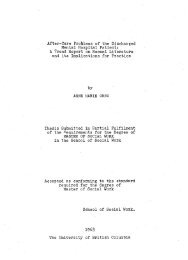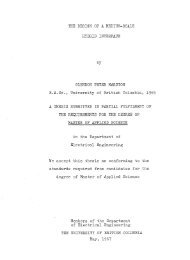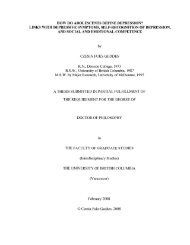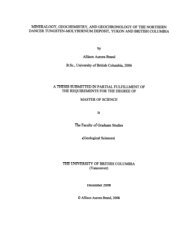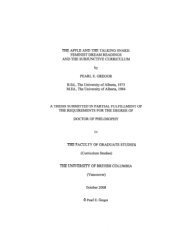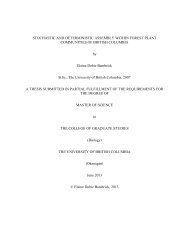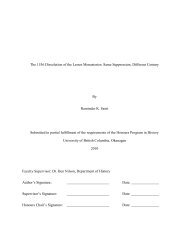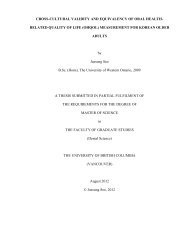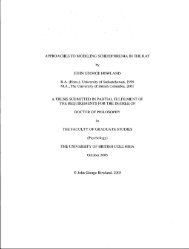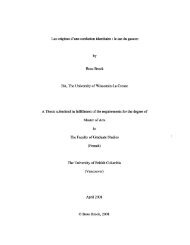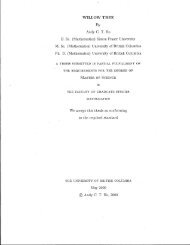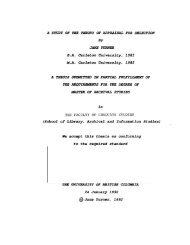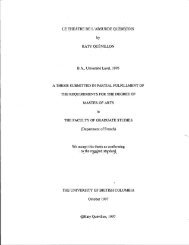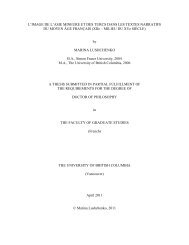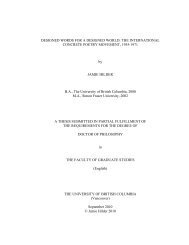Chapter 2 - University of British Columbia
Chapter 2 - University of British Columbia
Chapter 2 - University of British Columbia
You also want an ePaper? Increase the reach of your titles
YUMPU automatically turns print PDFs into web optimized ePapers that Google loves.
5.3.2 Integration <strong>of</strong> cancer genomic and epigenomic events<br />
DNA methylation and genomic instability. Cancer-specific aberrant DNA methylation is<br />
associated with reduced genomic stability and subsequent copy number alterations, including<br />
preferential loss <strong>of</strong> certain imprinted alleles (LOI) [178-184]. Mechanistically, this instability may<br />
be related to the susceptibility <strong>of</strong> hypomethylated DNA to undergo inappropriate recombination<br />
events [185]. Another mechanism known to negatively impact genomic integrity in lung cancer<br />
is the relaxation <strong>of</strong> transposable element control that is mediated by DNA methylation [186-190].<br />
DNA hypomethylation and DNA amplification. Preliminary evidence <strong>of</strong> specific<br />
demethylation <strong>of</strong> somatic segmental amplifications (or amplicons) has been put forth in lung<br />
cancer, perhaps representing a novel mechanism <strong>of</strong> aberrant oncogene activation [189, 191].<br />
Further studies using large-scale sequencing <strong>of</strong> bisulfite treated DNA will help to clarify this<br />
phenomenon [12]. Hypomethylation has also been implicated in the formation <strong>of</strong> specific copy<br />
number alterations in glioblastoma multiforme [192]. One potentially interesting application for<br />
DNA methylation pr<strong>of</strong>iling <strong>of</strong> cancer amplicons such as these, is in the discrimination between<br />
"driver" and "passenger" genes within the amplified sequence. It may be that DNA methylation<br />
within the promoters or gene bodies <strong>of</strong> these genes is responsible for the lack <strong>of</strong> uniform<br />
overexpression <strong>of</strong> genes residing within amplicons.<br />
DNA hypermethylation and copy number loss. The relationship between DNA<br />
hypermethylation and allelic loss is well documented. Tumor suppressor genes are frequently<br />
found in regions <strong>of</strong> common LOH, and these same TSGs are frequently found to be<br />
hypermethylated, perhaps best exemplified by the FHIT gene on chromosome 3p [193].<br />
Although it is unclear whether loss or hypermethylation occurs first, both are known to be very<br />
early events in tumorigenesis preceding any histologic alterations [194-196]. With the advent <strong>of</strong><br />
high resolution genome-wide technologies it has become possible to comprehensively search<br />
for genes that are inactivated by both mechanisms simultaneously [197].<br />
119



